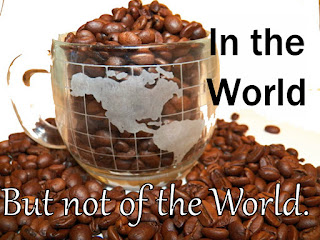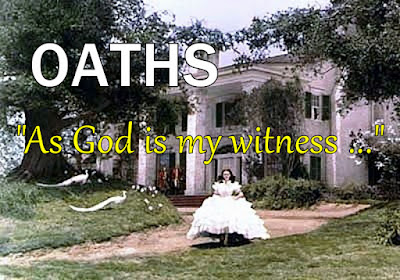CHRISTMAS JOURNEYS
In those days Caesar Augustus declared that everyone throughout the empire should be enrolled in the tax lists. This first enrollment occurred when Quirinius governed Syria. Everyone went to their own cities to be enrolled. Since Joseph belonged to David’s house and family line, he went up from the city of Nazareth in Galilee to David’s city, called Bethlehem, in Judea. He went to be enrolled together with Mary, who was promised to him in marriage and who was pregnant. While they were there, the time came for Mary to have her baby. She gave birth to her firstborn child, a son, wrapped him snugly, and laid him in a manger, because there was no place for them in the guestroom. Luke 2:1-7 (Common English Bible)
I didn't expect the phone call that came late one night in early March fourteen years ago. Dad, even at 95, always bounced back so quickly when he got sick, but his cold had turned into pneumonia, and the next day I was making a trip I didn't want to take: back home to Michigan to bury my father.
Mary and Joseph never expected that Mary would be giving birth to Jesus in a stable in Bethlehem (Hebrew for "house of bread") where a manger would serve as a cradle It came after a hard, exhausting, nine to ten day journey across three mountan ranges and through rough terrain.
Everything had been going so well! With the help of some divine intervention, Joseph had changed his mind about breaking off the engagement, and possibly the wedding day had been moved up. Joseph and Mary stayed in Nazareth, and after the child was born, would probably move to Bethlehem where Joseph's family were living. Mary would be able to have her first child in familiar surroundings with the women of her family there to help and support her.
Then, at the end of her last tri-mester, unexpected news came. People had to return to their home towns where they and their families owned property so they could be entered on the Roman tax rolls. By the time they reached Bethlehem, the small village of five hundred to a thousand people had swollen to a population of thousands. I imagine that any bit of space where a person could sleep was occupied.
Traditionally, the next part of their journey took place at an inn. The Common English Bible accurately translates the original Greek word, kataluma, as "guest room." Most homes at the time had an upper room for guests which could comfortably accommodate six people and their belongings -- more if people didn't mind getting cozy.
But whether the guest room in question was in an inn or in the home of one of Joseph's relatives, it remains that there was no room inside a crowded place for a woman about to give birth. Because of the discharge of blood and other bodily fluids, Mary and anything and anyone which had contact with her or anything she touched would be unclean. In such crowded conditions, avoiding contamination would be next to impossible.
So Mary was exiled to the stable, far from the comfort of home and familar faces with only Joseph and, I hope, a midwife, to help her through the birth. This was probably not what Mary would have chosen for herself.
We all make journeys that lead us to places and circumstances not of our own choosing. None of us would have chosen to go through the storm of July 11, 2011 and it's aftermath. And no one looks forward to a trip to the bedside of a dying loved one or a rush to the emergency room with an injured child or making the drive down to Cedar Rapids or Iowa City to an oncology unit for chemotherapy or radiation treatments.
Perhaps this Christmas finds you taking a journey of grief over the loss of a loved one, a job, or your health. Wherever our unwanted trips take us, what gives us the strength and the hope to get through them?
For Mary and Joseph, it may have been words of Scripture, like those from Zechariah 9:11-12. The prophet was writing to the people of Israel who were discouraged about how hard their journey had been:
"Moreover, by the blood of your covenant, I will release your prisoners from the waterless pit. Return to the stronghold, prisoners of hope. Moreover, declare today that I will return double to you." (Common English Bible)
God was reminding them that God had not forgotten about them or the promises God made.. One day, God would send a king, a Messiah, who would deliver God's people from despair to being prisoners of hope.
Prisoners of hope -- what a concept! To be so captured and bound by hope that we are unable to do anything expcept look beyond our circumstances to the promice of God's action for good in our lives!
Hope is the choice to look at our circumstances through eyes of faith. It is choosing to believe that God can take the sorrow, the pain, the trouble, and even the hopelessness of our journeys and use these to accomplish God's good purposes for our lives and for the world.
There were more unwanted journeys in store for Mary and Joseph. Approximately two years later, they would flee to Egypt to escape the wrath of King Herod. Thirty some years later, Mary would travel to Jerusalem to witness the death of Jesus.
There's little doubt that we, too, will be making more trips we don't want to take. At Christmas, God reminds us that in Bethlehem, the house of bread, Jesus, the bread of life, was born and laid in a manger, a feeding trough, and would die on a cross for our salvation and so that we may be nourished, strengthened and sustained on life's journey. Through Christ, we have the promise of hope that whatever we are going through is not the final chapter because God will not forget us or abandon us. God will always be by our side (and on our side), every step of the way, working for our good.
I didn't expect the phone call that came late one night in early March fourteen years ago. Dad, even at 95, always bounced back so quickly when he got sick, but his cold had turned into pneumonia, and the next day I was making a trip I didn't want to take: back home to Michigan to bury my father.
Mary and Joseph never expected that Mary would be giving birth to Jesus in a stable in Bethlehem (Hebrew for "house of bread") where a manger would serve as a cradle It came after a hard, exhausting, nine to ten day journey across three mountan ranges and through rough terrain.
Everything had been going so well! With the help of some divine intervention, Joseph had changed his mind about breaking off the engagement, and possibly the wedding day had been moved up. Joseph and Mary stayed in Nazareth, and after the child was born, would probably move to Bethlehem where Joseph's family were living. Mary would be able to have her first child in familiar surroundings with the women of her family there to help and support her.
Then, at the end of her last tri-mester, unexpected news came. People had to return to their home towns where they and their families owned property so they could be entered on the Roman tax rolls. By the time they reached Bethlehem, the small village of five hundred to a thousand people had swollen to a population of thousands. I imagine that any bit of space where a person could sleep was occupied.
Traditionally, the next part of their journey took place at an inn. The Common English Bible accurately translates the original Greek word, kataluma, as "guest room." Most homes at the time had an upper room for guests which could comfortably accommodate six people and their belongings -- more if people didn't mind getting cozy.
But whether the guest room in question was in an inn or in the home of one of Joseph's relatives, it remains that there was no room inside a crowded place for a woman about to give birth. Because of the discharge of blood and other bodily fluids, Mary and anything and anyone which had contact with her or anything she touched would be unclean. In such crowded conditions, avoiding contamination would be next to impossible.
So Mary was exiled to the stable, far from the comfort of home and familar faces with only Joseph and, I hope, a midwife, to help her through the birth. This was probably not what Mary would have chosen for herself.
We all make journeys that lead us to places and circumstances not of our own choosing. None of us would have chosen to go through the storm of July 11, 2011 and it's aftermath. And no one looks forward to a trip to the bedside of a dying loved one or a rush to the emergency room with an injured child or making the drive down to Cedar Rapids or Iowa City to an oncology unit for chemotherapy or radiation treatments.
Perhaps this Christmas finds you taking a journey of grief over the loss of a loved one, a job, or your health. Wherever our unwanted trips take us, what gives us the strength and the hope to get through them?
For Mary and Joseph, it may have been words of Scripture, like those from Zechariah 9:11-12. The prophet was writing to the people of Israel who were discouraged about how hard their journey had been:
"Moreover, by the blood of your covenant, I will release your prisoners from the waterless pit. Return to the stronghold, prisoners of hope. Moreover, declare today that I will return double to you." (Common English Bible)
God was reminding them that God had not forgotten about them or the promises God made.. One day, God would send a king, a Messiah, who would deliver God's people from despair to being prisoners of hope.
Prisoners of hope -- what a concept! To be so captured and bound by hope that we are unable to do anything expcept look beyond our circumstances to the promice of God's action for good in our lives!
Hope is the choice to look at our circumstances through eyes of faith. It is choosing to believe that God can take the sorrow, the pain, the trouble, and even the hopelessness of our journeys and use these to accomplish God's good purposes for our lives and for the world.
There were more unwanted journeys in store for Mary and Joseph. Approximately two years later, they would flee to Egypt to escape the wrath of King Herod. Thirty some years later, Mary would travel to Jerusalem to witness the death of Jesus.
There's little doubt that we, too, will be making more trips we don't want to take. At Christmas, God reminds us that in Bethlehem, the house of bread, Jesus, the bread of life, was born and laid in a manger, a feeding trough, and would die on a cross for our salvation and so that we may be nourished, strengthened and sustained on life's journey. Through Christ, we have the promise of hope that whatever we are going through is not the final chapter because God will not forget us or abandon us. God will always be by our side (and on our side), every step of the way, working for our good.



Comments
Post a Comment